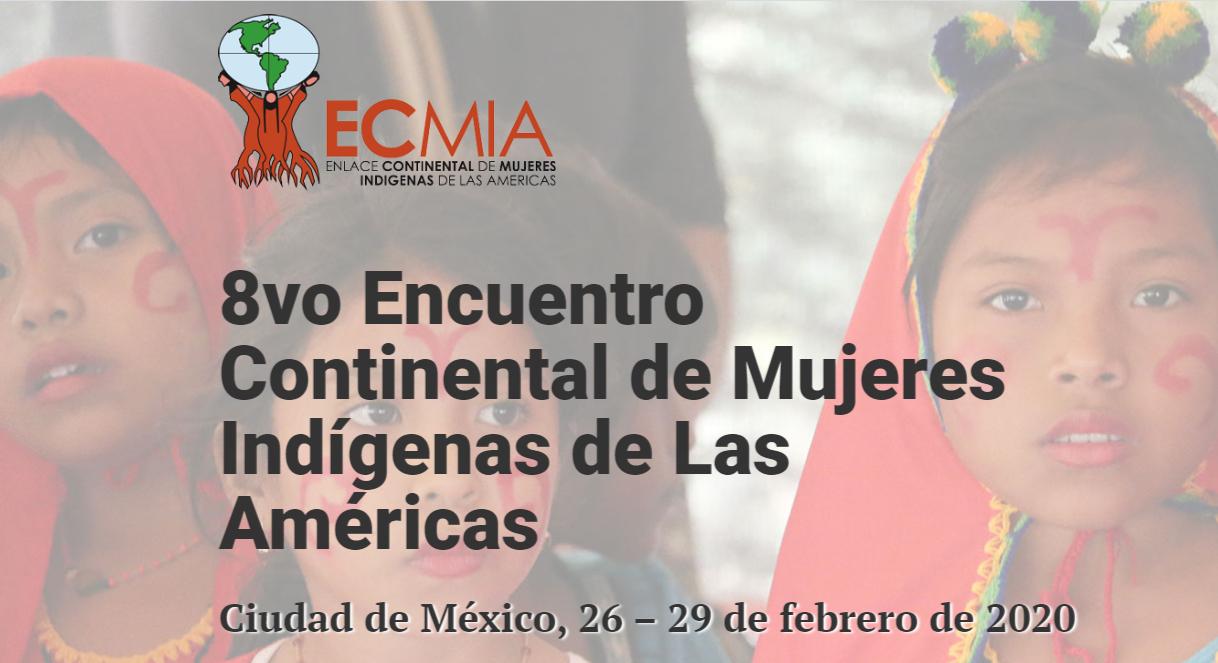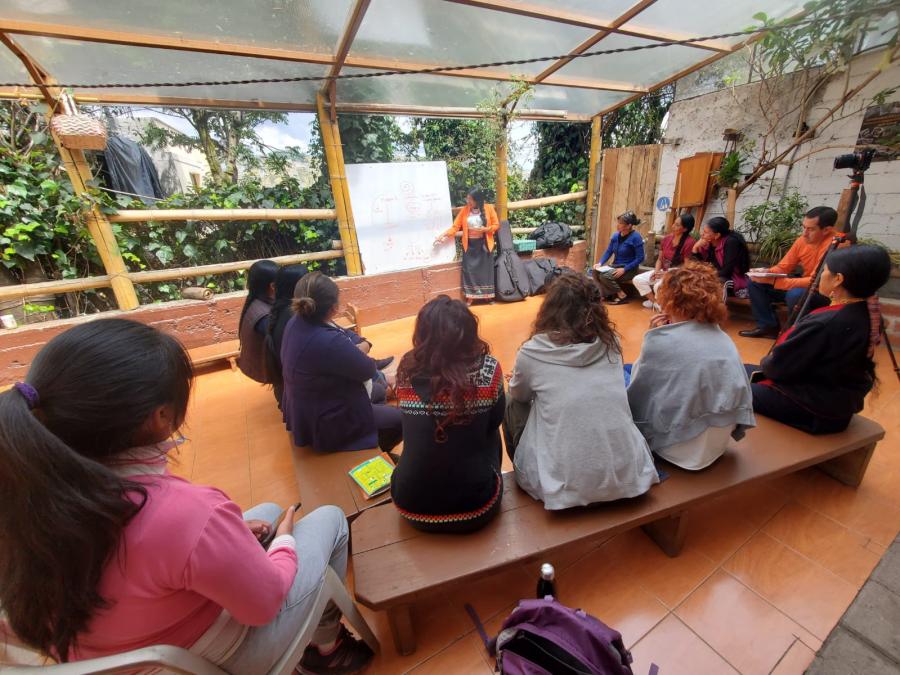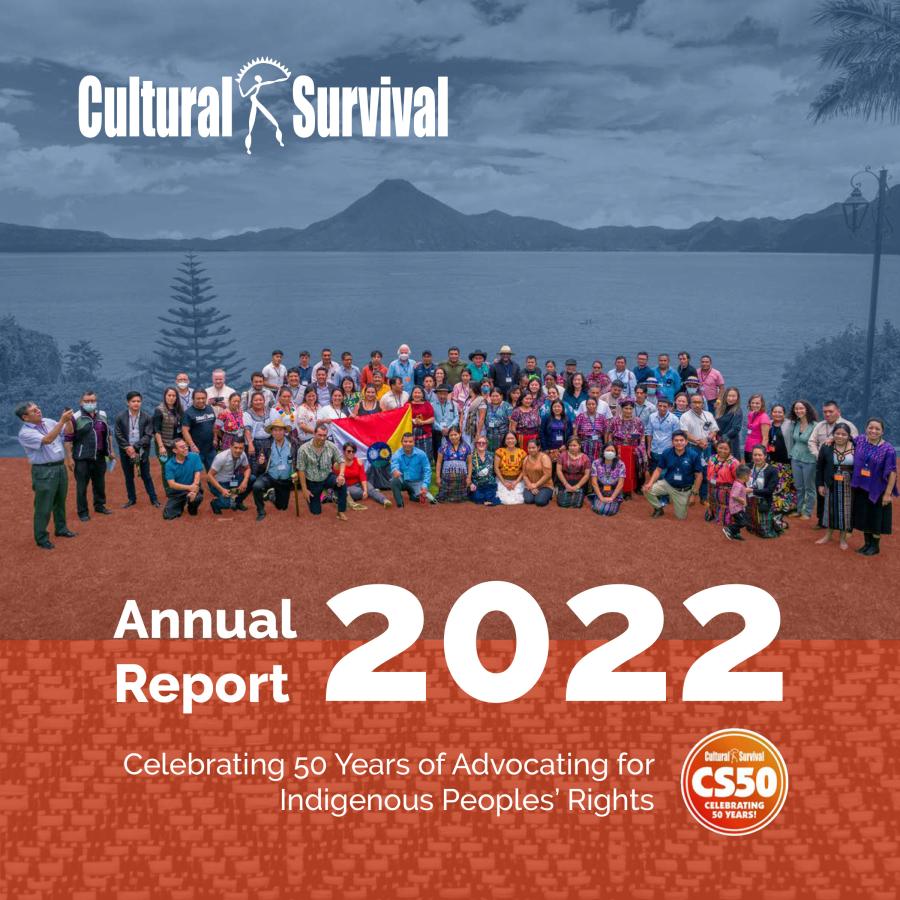
On February 26-29, 2020, Indigenous women from across the American continent will come together in Mexico City for the 8th Continental Conference of Indigenous Women of the Americas. The Conference will be hosted by the Continental Network of Indigenous Women of the Americas (ECMIA), a network of organizations from 23 countries that has been fighting for more than two decades for the individual and collective rights of Indigenous women and children. In particular, the Network has focused on inserting themselves as Indigenous women into “the global, regional and national arenas in order to gain a voice in the formulation of, adherence to, and revision of State agreements, particularly in the area of the United Nations.” Upon its initial formation in 1993, the ECMIA worked to make the situation of Indigenous women a focal point of the International Conference on Population and Development in Cairo and the Fourth World Conference on Women in Beijing, and given that this upcoming Continental Congress falls around the 25th anniversary of the Cairo Conference, the Beijing Conference, and the founding of the ECMIA, it represents an important opportunity to reflect on both the achievements of the Network as well as the challenges still faced by its members.
One of the specific objectives of the Conference according to the ECMIA is to “carry out an assessment of the situation of the Indigenous women and girls of the Americas in the context of Beijing +25 and Cairo +25, in conjunction with the 2030 Agenda for Sustainable Development, the UN Declaration on the Rights of Indigenous Peoples, and the ILO Convention 169.” Another objective is to construct a political agenda for Indigenous women of the Americas that is grounded in intergenerational dialogue and cooperation and that prioritizes strategies to be carried out on both the local and global level. The Conference will seek to “promote the exchange of knowledge and experiences between young and adult Indigenous women,” and in this way, attempt to establish a political consensus between attendees.
The topics discussed at the Conference will be broken up into six categories: Human Rights, Violence, and Power; Climate Change; Poverty, Economics, and Food Sovereignty; Gender Violence and Indigenous Women; Health, Education, and Identity; and Influential Indigenous Women in Organizational Processes and Intergovernmental Spaces. Specific areas of concern within these broad categories include Indigenous womens’ access to political participation and decision making, female Indigenous entrepeneurship, sexual violence and feminicide, and sexual and reproductive rights, though the list is much more expansive. Along these lines, the Conference might see the continued consideration of issues brought to light by the ECMIA in their list of recommendations at the Fourteenth Regional Conference on Women in Latin America and the Caribbean, which took place in January 2020 in Santiago, Chile. Some of these included the needs to “strengthen investigations regarding the types of employment that Indigenous and Afrodescendant women have access to,” “guarantee protection and access to justice for Indigenous, Afrodescendant, and rural women,” and “incorporate penalties into the legal framework for political violence, sexual harassment, and racism, all of which limit the [political] participation of Indigenous and Afrodescendant women."
In order to facilitate the sharing of information and the collective construction of political proposals, the Conference will take on various forms of discussion, including informational lectures, thematic panels, and breakout working groups. The informational lectures will allow participants to learn more about relevant topics such as the Beijing and Cairo Conferences and the 2030 Agenda for Sustainable Development, and the thematic panels will give participants the opportunity to hear from experts about their political experiences and contributions. During the breakout groups, participants will go into more depth about topics considered to be the greatest priorities, and afterwards, they will come back together in a plenary session with the objective of reaching an agreement on a political agenda and crafting an action plan.
The Conference is organized with the goal of highlighting different perspectives and promoting dialogue between Indigenous women of different generations and professional backgrounds, including “parliamentarians, speakers, artists, academics, human rights defenders, and those with knowledge of the Indigenous health system, as well as with other allies belonging to international organizations, foundations, academia, and social movements.”


